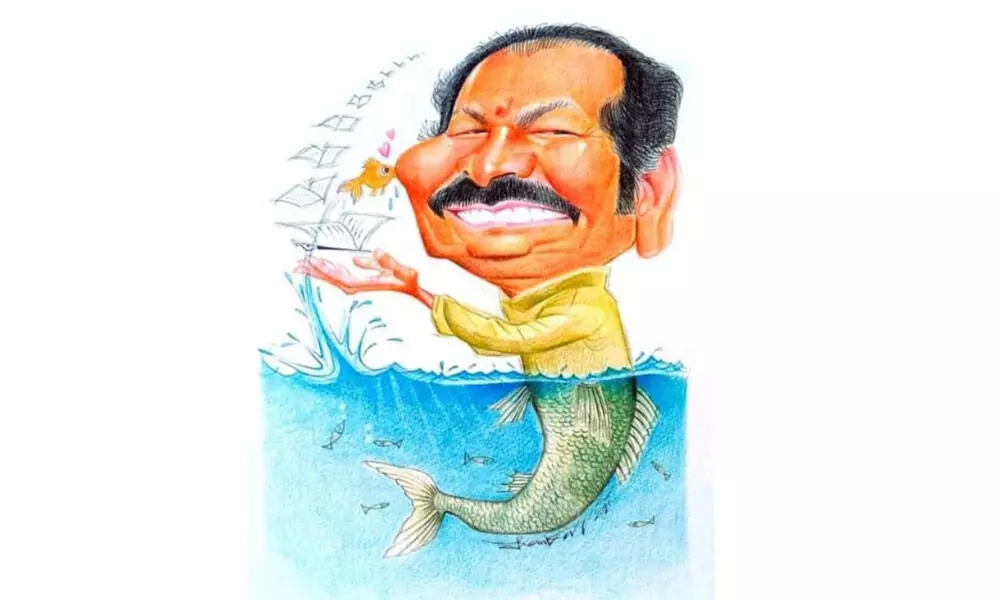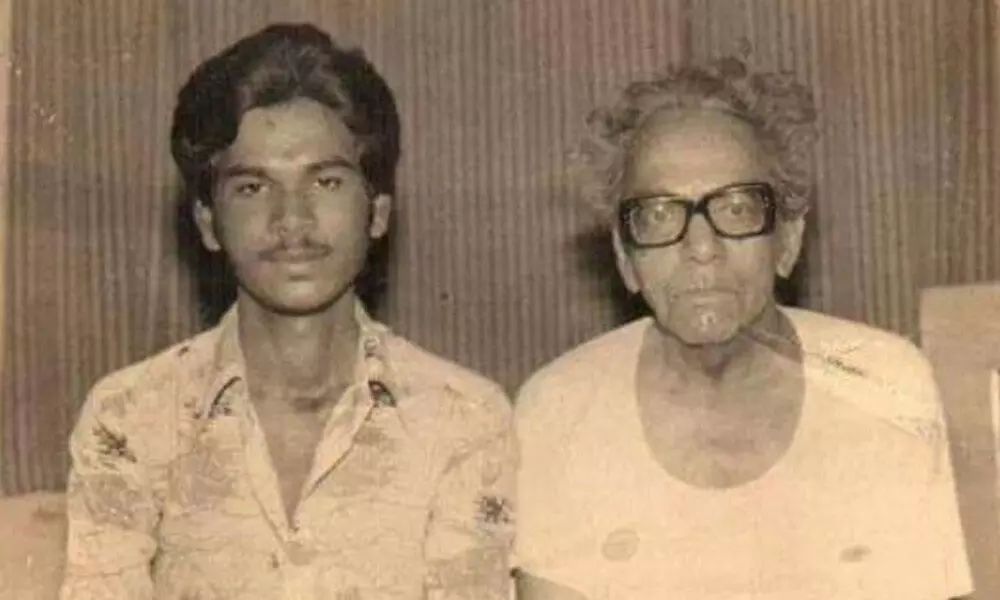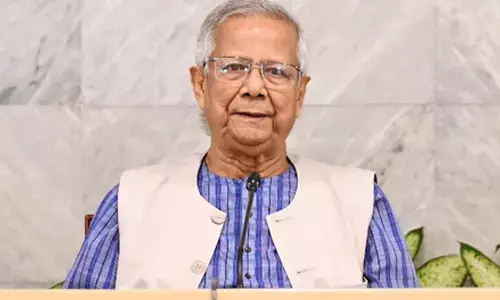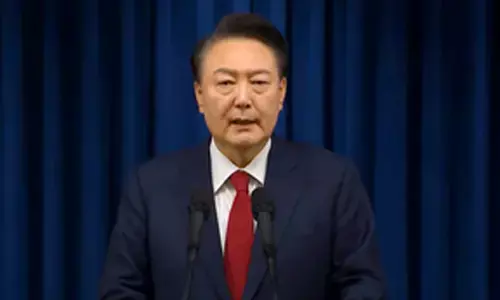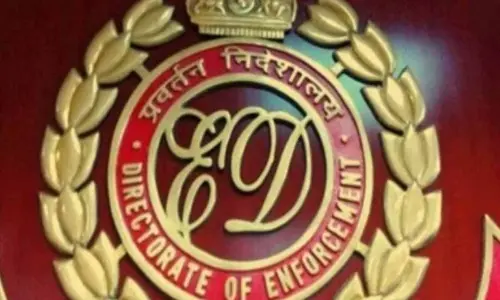A poet whose works reflect the land he hails from
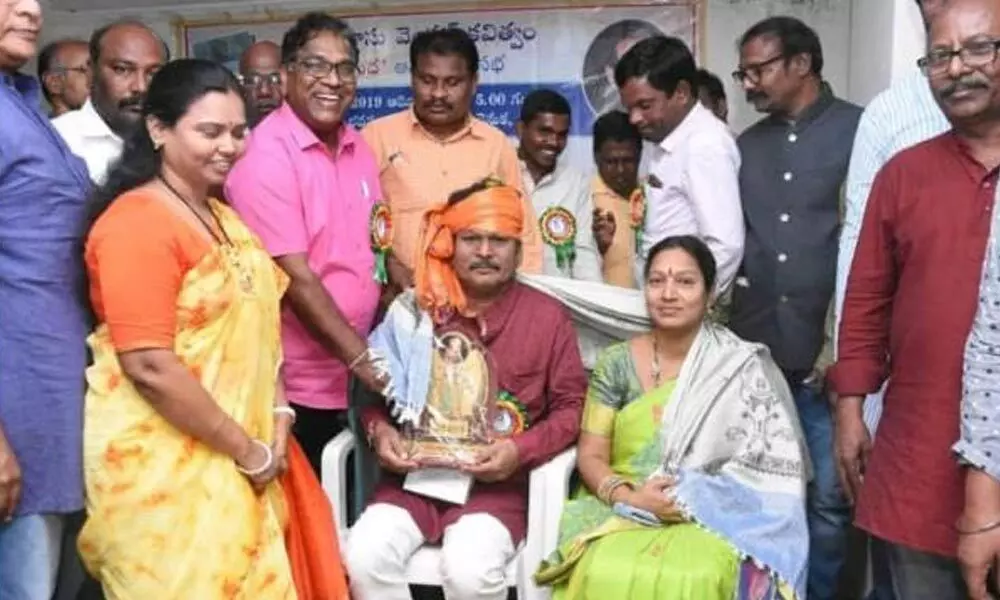
Bhanusree Kothwal and Goreti Venkanna felicitating Munasa Venkanna couple during the launch of his book ‘Meda’
A poet born in a neglected section of backward community and associated with nature, water and oppressed sections has started writing poems in Telangana dialect at the river bank of Panagal reservoir of Nalgonda, while engaging in his caste-based profession ( catching fish)
A poet born in a neglected section of backward community and associated with nature, water and oppressed sections has started writing poems in Telangana dialect at the river bank of Panagal reservoir of Nalgonda, while engaging in his caste-based profession ( catching fish). He has got international identity with his powerful, strong and thought-provoking sentences. He is none otherMunasa Venkat, a son of the revolutionary soil of Nalgonda.
Venkat has been appreciated by famous Telugu poets including late Sri Sri , late Sri Narayana Reddy and was honoured with Sri Narayana Reddy award two years ago.
His literary work "Meda" was translated into English by Manthena Damodara Chary in the name of "Harvest Sheaves"and noted Australian poet Vincent Stead wrote the foreword to it.
As Vincent stead stated Munasa Venkat's book is based on the area of the state of Telangana and examines the landscape, society and people, from the viewpoint of someone who lives there. Personal, social, historical and poetic perspectives are utilised by the poet in this examination, so that the reader is gifted with a dynamic insight of Telangana and its interaction with the wider world that transcends the limitations of time and space.
'This book is not a static observation but a work that imaginatively shows how the individual, Nature and aspects of society are inexorably linked over time, in a constant process of interaction and change on a number of levels in a variety of spaces' goes on the foreword.
It may be noted that Venkat was honoured by State government by giving the opportunity of presiding over the first Kavi Sammelanam of Prapancha Telugu Maha Sabalu organised in Hyderabad , four years ago.
Also , one of his poems was selected as one of the top five best poems at the competition of International Standard Telugu poems -2021 organized by Calcutta-based Rabindranath Tagore Kavitha Ghar Which received 1292 poems from Telugu poets across the country.
Venkat's native place is Nalgonda and he is an Arts graduate. He was inclined towards the literary world, as revolutionary poets used to come to his house and regular discussions used to take place with his elder brother Munasa Peddulu about the books that they read. Venkat used to attend literary meetings from Class IX onwards.
His association with Sahithi Mekala Ambadipudi Venkata Ratnam as his neighbour so alsointroduction and impact of famous poets Sri Sri, Raavi Shastri , Arudra and Digambara at the age of 20 in 1980's bonded him to the world of literature. He brought out a book of poems with his pet name " Vastavi" in the name of " Repati Kavithalu" along with poets Vyakaranam Prabhakar and Vishnu Baradwaja but he got special recognition through his poem " Brahma mukam lonchi Paadaalu ( Foot from the face of Lord Brahma)" published in 1997.
Venkat along with same ideology brought a book with collection of their poems with a title of "Bahu Vachanam" under the banner of Neelagiri Sahithi. Later Venkat brought his own poems, books Ena , Varjee and Meda under the banner of Gosangi Kavulu. Telangana slang and heart touching colloquial language of local people are key ingredients of Venkat poems.
Venkat got appreciation from critics for his usage of Telugu proverbs and idioms in his poems. His source of material for writing poems were rural lifestyle, mothers' pain,natural calamities , fluorosis and regional disparities A few thought-provoking sentences in Venkat poems include –'People are always unlucky in all movements', 'The poor are getting insulted through their shyness' etc. Munasa Venkat ensures that his sentences are filled with smell of the earth he hails from.


